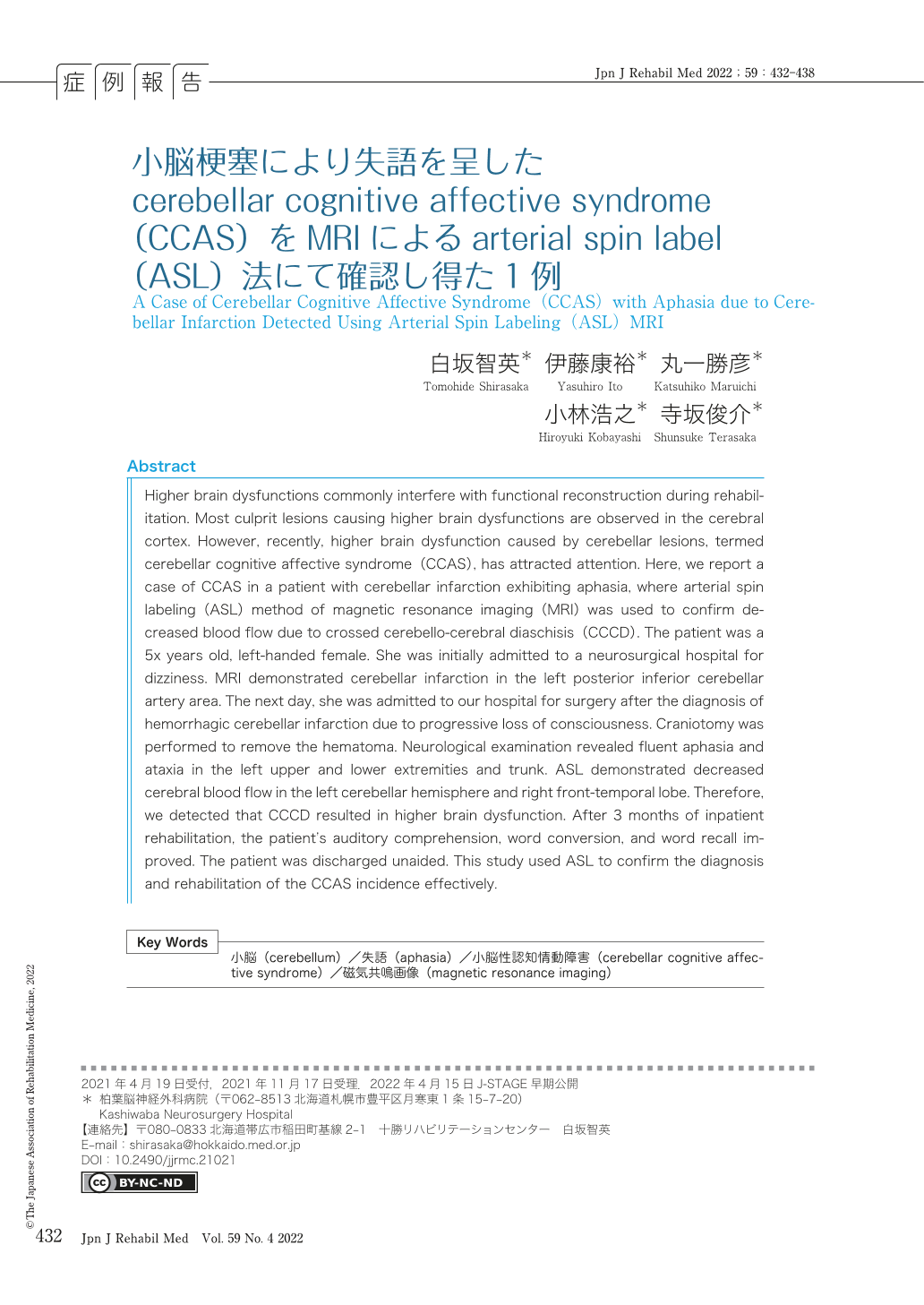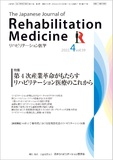Japanese
English
- 販売していません
- Abstract 文献概要
- 1ページ目 Look Inside
- 参考文献 Reference
はじめに
脳卒中患者のリハビリテーション治療による機能再建やactivities of daily living(ADL)への汎化の過程で,高次脳機能障害が阻害因子となることはまれならず経験する.高次脳機能障害の責任病巣は,そのほとんどが大脳半球病変である.しかし,近年cerebellar cognitive affective syndrome(CCAS)として小脳病変による高次脳機能障害が注目されている1-7).今回われわれは左小脳の出血性梗塞を発症後,失語症をはじめとした高次脳機能障害を呈する症例を経験した.本症例に対し,magnetic resonance imaging(MRI)のarterial spin label(ASL)法を施行したところ,crossed cerebello-cerebral diaschisis(CCCD)による血流低下を確認し,CCASと診断し得たため報告する.
なお,本症例報告に関して,患者本人に説明のうえ,口頭にてご同意をいただいている.
Higher brain dysfunctions commonly interfere with functional reconstruction during rehabilitation. Most culprit lesions causing higher brain dysfunctions are observed in the cerebral cortex. However, recently, higher brain dysfunction caused by cerebellar lesions, termed cerebellar cognitive affective syndrome (CCAS), has attracted attention. Here, we report a case of CCAS in a patient with cerebellar infarction exhibiting aphasia, where arterial spin labeling (ASL) method of magnetic resonance imaging (MRI) was used to confirm decreased blood flow due to crossed cerebello-cerebral diaschisis (CCCD). The patient was a 5x years old, left-handed female. She was initially admitted to a neurosurgical hospital for dizziness. MRI demonstrated cerebellar infarction in the left posterior inferior cerebellar artery area. The next day, she was admitted to our hospital for surgery after the diagnosis of hemorrhagic cerebellar infarction due to progressive loss of consciousness. Craniotomy was performed to remove the hematoma. Neurological examination revealed fluent aphasia and ataxia in the left upper and lower extremities and trunk. ASL demonstrated decreased cerebral blood flow in the left cerebellar hemisphere and right front-temporal lobe. Therefore, we detected that CCCD resulted in higher brain dysfunction. After 3 months of inpatient rehabilitation, the patient's auditory comprehension, word conversion, and word recall improved. The patient was discharged unaided. This study used ASL to confirm the diagnosis and rehabilitation of the CCAS incidence effectively.

Copyright © 2022, The Japanese Association of Rehabilitation Medicine. All rights reserved.


